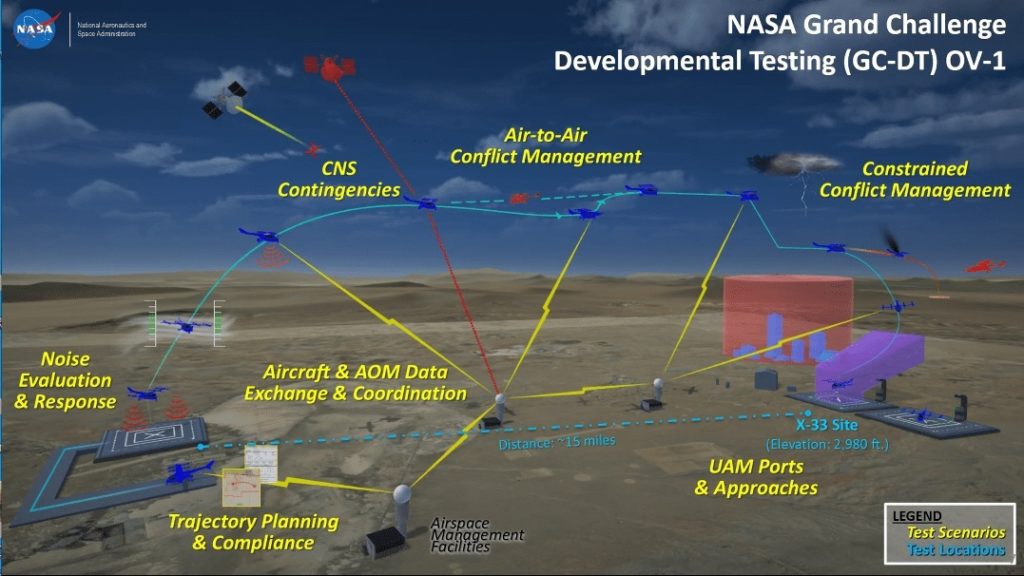
Seventeen companies have signed Space Act Agreements with NASA to participate in the agency’s first Urban Air Mobility Grand Challenge, a series of technology demonstrations meant to test the readiness of vehicles and systems intended for use in low-altitude, urban airspace.
Joby Aviation was the only company selected to provide a vehicle to fly in the initial event, termed the Grand Challenge Developmental Test (GC-DT) by NASA, set to take place later this year. GC-DT is meant as a preparatory event for the first official Grand Challenge (GC-1) event, slated for fiscal year 2022.
Five other companies — Bell [TXT], Boeing [BA], NFT, Prodentity and Zeva — were selected to participate in the “vehicle provider information exchange,” providing the agency with information about their aircraft with the intent of participating in GC-1.
Joby, Bell and Boeing are part of Uber Elevate, the rideshare giant’s UAM development ecosystem that includes Hyundai [HYMTF] and other electric VTOL aircraft developers. Uber [UBER], which has previously participated in a number of NASA projects related to unmanned traffic management, was one of 11 companies selected as developmental airspace simulation partners to test their UAM traffic management services; others include AirMap, General Electric [GE] subsidiary AiRXOS, ANRA Technologies, ARIC, and OneSky Systems.
Through the Grand Challenge series, NASA intends to bring together companies involved in emerging air transportation systems to help inform requirements and best practices for UAM operations, including Federal Aviation Administration certification requirements for electric and hybrid-electric aircraft. The U.S. Air Force recently announced a similar effort — dubbed ‘Agility Prime’ — to engage with industry on eVTOL aircraft development and support the commercial certification process via flight testing.
“We consider this work as a risk reduction step toward Grand Challenge 1,” said Starr Ginn, NASA’s Grand Challenge lead. “It is designed to allow U.S. developed aircraft and airspace management service providers to essentially try out their systems with real-world operations in simulated environments that we also will be flight testing to gain experience.”
The five-year Space Act Agreements signed by the 17 participating companies do not involve any exchange of funds, with both NASA and the signing parties agreeing to provide resources to accomplish testing goals.